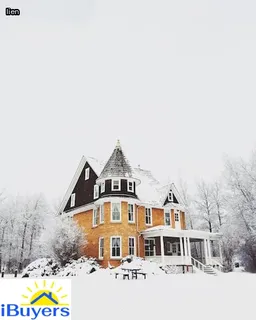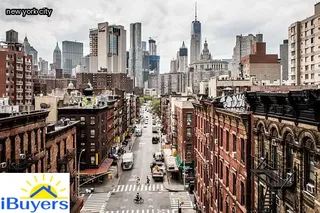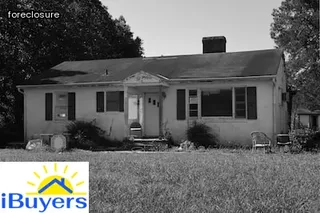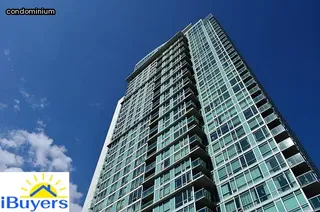Homeowners associations (HOAs) are common in many parts of New York State. HOAs are organizations that manage and maintain a residential community.
They may also be known as community association (COA). HOAs set rules and regulations for the community, collect dues from homeowners, and use those funds to cover maintenance costs like landscaping, snow removal, and street repairs.
In order for an HOA to function properly and keep the community running smoothly, it’s important for all homeowners to pay their dues on time. In New York State, if an owner fails to pay their dues in full or on time, penalties may be imposed by the COA or HOA.
These penalties can come in the form of late fees, liens being placed on the property, or a lien foreclosure if the homeowner continues to not pay the dues. It is important that all homeowners understand the consequences of not paying their HOA assessments so they can avoid any financial repercussions.

The cost of unpaid HOA dues in New York State can be severe. Understanding the common charges associated with a COA or HOA in New York is essential to avoiding these consequences.
Fees include regular assessments, maintenance fees, and special assessments. Regular assessment fees are billed to homeowners on a monthly or annual basis to cover operational costs such as insurance, landscaping, and repairs.
Maintenance fees cover larger projects such as roof replacement and other major repairs. Special assessments are used for upgrades or special projects that require additional funds beyond what is covered by the regular assessment fees.
Homeowners must pay all of these fees as outlined in their HOA agreement; failure to do so could result in serious legal action including fines, liens on the property, and even foreclosure proceedings.
Navigating a COA or HOA lien foreclosure in New York can be daunting, especially when unpaid dues are a factor. Understanding the consequences of not paying Homeowners Association (HOA) fees is key to avoiding the potential risks of a lien foreclosure.
In New York State, failure to pay dues may result in late fees and interest on top of the original balance. An HOA can also place a lien on the property for unpaid dues and eventually, foreclose on it if payment is not received.
The HOA has the legal right to collect any costs associated with their legal action from the homeowner as well. When this happens, an individual’s credit score can be seriously damaged and they may no longer be able to borrow money or obtain financing.
It's important for homeowners in New York to stay current on HOA dues by making timely payments and knowing their rights if they are unable to do so.

Mortgage and Homeowners Association (HOA) or Community Owners Association (COA) dues are an important part of owning a home. When these dues go unpaid, the consequences can be significant.
In New York State, understanding the consequences is critical for managing a mortgage and HOA or COA lien. Unpaid dues can lead to late fees and other penalties, as well as potential foreclosure proceedings by the HOA or COA.
It's important for homeowners to stay on top of their payments in order to avoid any additional costs that could incur from being delinquent on dues payments. It’s also important to be aware of any special assessments that may come from the HOA or COA due to unpaid dues, since these could create further financial hardship if not addressed promptly.
Additionally, property taxes may increase if overdue payments become too high, so it's important to keep track of what’s owed and when it needs to be paid in order to avoid those extra charges. Lastly, failure to pay HOA or COA dues could potentially result in a lien placed against the property in question, which would hurt the homeowner's credit score and make it difficult for them to refinance or sell their home down the line.
All of these factors should be taken into consideration when assessing how best to manage a mortgage and an HOA or COA lien in New York State.
Facing an HOA/COA foreclosure in New York State due to unpaid dues can be a stressful situation, and it is important to understand the consequences of not making timely payments. In some cases, homeowners may be put at risk of losing their home if they cannot make up for any overdue payments or fees.
Fortunately, legal help is available to those facing an HOA/COA foreclosure in New York State. An experienced attorney can work with you to review your options and explore potential strategies that could help protect your property rights.
They can provide guidance on understanding the laws and regulations that apply to HOA/COA foreclosures in New York State, as well as assist with negotiations with the association's representatives. Additionally, they can evaluate any potential defenses that you may have against a foreclosure action taken by your HOA/COA.
If you find yourself facing an HOA/COA foreclosure in New York State due to unpaid dues, contact a qualified attorney today for more information about how they can help you protect your interests and secure a favorable outcome for your case.

Living in New York State has many wonderful benefits, including access to some of the world's most iconic landmarks, a vibrant art and culture scene, and an abundance of job opportunities. When it comes to homeowners associations (HOA), however, there can be serious consequences for failing to pay dues.
Understanding the potential implications is essential for residents who are part of an HOA in order to maintain their property value. In New York State, these consequences may include fines, penalties, or even legal action if dues remain unpaid.
However, if they are paid on time and in full every month as required by the HOA agreement, homeowners will be able to enjoy the many perks that come with living in New York State without worry.
When it comes to understanding the consequences of unpaid Homeowners Association (HOA) dues in New York State, applying the principles of a Common Ownership Association (COA) lien is key. A COA lien is designed to protect HOA organizations and ensure that members pay their dues on time and in full.
In New York, a COA lien will be imposed by the association when homeowners are delinquent in making payments and is usually recorded with the county clerk's office. This lien becomes a public record, which can then be used by creditors and other parties to take legal action against an individual for nonpayment of dues.
The amount owed plus interest and late fees will need to be paid before the lien can be removed from a homeowner’s record. Additionally, if an individual doesn’t pay the debt off within two years, they may lose their house through foreclosure.
Therefore, it is important for homeowners associations in New York State to understand how COA liens work so that members can be held accountable for their dues obligations and avoid any serious financial repercussions.

Exploring the consequences of foreclosing on a unit in New York State due to unpaid Homeowners Association (HOA) dues can be a daunting task. It is important to understand that failure to pay HOA fees could lead to foreclosure, which can have serious financial implications.
Foreclosure proceedings can take months or even years, and the homeowner will incur legal fees and court costs as well as other related expenses. During this time, the homeowner will no longer have access to the property and will be unable to collect rent from it.
Additionally, the homeowner may have difficulty obtaining future credit if their property is foreclosed upon. Furthermore, any resources or equity held in the property prior to foreclosure are subject to seizure by creditors.
Finally, foreclosing on a unit could damage the homeowner's reputation in their community and make it difficult for them to purchase another property in New York State in the future. Understanding all of these potential consequences of unpaid HOA dues is critical for homeowners in New York State.
Homeowner’s Associations (HOAs) in New York State are legally empowered to impose liens on the property of delinquent members. Understanding the consequences of unpaid HOA dues is an important step in avoiding these actions, which can result in financial hardship and significant delays when attempting to sell or refinance a home.
Liens are created by HOAs when an individual fails to pay their dues; they serve as a legal claim on the property, with the proceeds from payment used to cover any unpaid fees. The lien will remain until all fees have been paid and any associated interest has been settled.
In some cases, even after paying off the dues, there may be additional costs for late charges and collection expenses that must also be satisfied before the lien is released. Furthermore, if the amount owed remains unpaid for too long, the HOA may decide to “foreclose” on the lien, meaning they can take ownership of a portion of the property – usually through auction – until all fees are paid and full ownership is returned.
It is important to note that this process can take years and can greatly reduce a homeowner’s equity in their property. Therefore, it is essential for homeowners to stay informed about their HOA dues and promptly make payments so as to avoid potential foreclosure proceedings being taken against them.

Bankruptcy proceedings can be a difficult process that often leaves individuals with reduced financial resources. This fact is especially true when it comes to homeowners associations (HOAs) and their unpaid dues that have been left behind in the wake of bankruptcy proceedings.
In New York State, there are specific laws and regulations governing HOAs and their ability to pursue payment for unpaid dues. Understanding these consequences is essential for those navigating the aftermath of bankruptcy in the state.
When a homeowner files for bankruptcy, the HOA’s claim against that person falls under priority status, meaning they must be paid in full or partially before any other creditors. As such, it is important to remain aware of the fees associated with being a member of an HOA and what happens if payments are not made on time.
If payments are not made by a certain date, then legal action may be taken against the homeowner by their respective HOA, including foreclosure proceedings or liens placed on the property. In order to protect themselves from further financial hardship, individuals should work through their HOA charges as soon as possible after filing for bankruptcy in order to avoid any additional fees or complications down the line.
Yes, you do have to pay Homeowner Association (HOA) fees in New York State. Unpaid HOA dues can lead to costly consequences for homeowners in the state, making it important to understand the implications of not paying your fees.
If you fail to pay your HOA dues on time, you may be subject to late fees and other fines. Additionally, non-payment of dues could result in a lien against your property, preventing you from selling or refinancing until the debt is paid off.
In some cases, unpaid HOA dues can even result in foreclosure proceedings being initiated by the association. It’s important to stay up-to-date with all payments and understand the potential consequences of non-payment so that you don’t run into any issues with your HOA.

Can HOA fees be deducted from capital gains? In New York State, failure to pay Home Owners Association (HOA) dues can have serious consequences. Unpaid HOA dues can result in the accrual of late fees, interest charges, and even liens on a homeowner's property.
The inability to deduct HOA fees from capital gains is an important consideration for homeowners who must pay their association's mandatory assessments. Understanding the implications of not paying HOA dues can help homeowners manage their finances and prevent costly legal action.
It is critical that homeowners understand the potential tax ramifications of not paying their HOA fees, as well as any other financial obligations they may face. By understanding the consequences of unpaid HOA dues in New York State, homeowners can make informed decisions about how to proceed with payment or risk management strategies.
New York is known for its high cost of living, and Homeowner Association (HOA) fees are no exception. HOAs are responsible for maintaining and improving common areas in residential developments, such as landscaping, amenities, and recreational facilities.
When homeowners fail to pay HOA dues in New York State, there can be serious repercussions. In some cases, delinquent homeowners may face legal action or a lien against their property - both of which can be costly.
Other consequences may include suspension of privileges associated with the property or being prohibited from voting on HOA-related matters. It's important to note that these consequences vary from state to state and within individual jurisdictions.
With the high cost of living in New York State, it's no surprise that HOA fees are often expensive - making it even more critical for homeowners to stay up-to-date on their dues payments to avoid any potential penalties.
The average Homeowners Association (HOA) fee in New York City can vary greatly depending on the type of property and the size of the community. Generally, the fees are charged to cover maintenance costs and common services such as landscaping and snow removal.
In some cases, HOA fees may also include additional services such as security or recreation access. Understanding the consequences of unpaid HOA dues is important for any homeowner in New York State.
Failure to pay these fees can lead to late fees and eventually a lien against the property, which can negatively impact credit scores and make it difficult to get loans or mortgages in the future. It is important to understand what your specific HOA fees are before signing a contract in order to ensure they are paid on time.